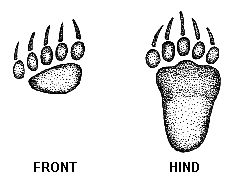[
Note: This piece was written a few months ago. It's not funny, and probably not particularly clear either. That's why it has found a home here with the other substandard by-products of my mind.]
This is an essay mostly about hope. In my personal experience of the corporate environment, and from the stories I’ve heard seasoned colleagues tell, I’ve been led to believe that corporations are what they are: unmovable monoliths that cannot be shaken. One either has to develop personal strategies in order to climb up the ladder, or melt into the background in order to remain relatively unmolested. Neither approach focuses on why any of us go to work every day – to take pride in being part of something worthwhile. It’s all about getting in and out as quickly and painlessly as possible whilst still getting paid at the end of the day. There is a certain resignation to the unchangeable nature of corporate life, leading to the belief that change is either unnecessary or bad, or both.
Much of this, it seems, has to do with the styles of leadership predominant in corporate environments today. Process and cost-focused techniques have rendered workers and products as mere numbers. Management activity mostly consists of busywork compiling spreadsheets, project plans, and PowerPoints, into which these numbers feed and are presented. The passive and repeated application of process and calculation attempts to show micro-level victories. Some would have us believe this adds up to an entire body of success, and equally that those responsible are also successful leaders.
These matrices of numbers, however, are a house of cards – one new requirement causes a daisy chain of paperwork explosions. Hence, the entire approach vilifies changes: “How can one shoot a moving target?” is an oft-heard complaint. So while movement is kept to a forcible minimum, and deadlines and targets are met, gaping macro-level deficiencies crop up: wasted resources in terms of money and human effort, mediocre quality products, loss of market share, lack of passion amongst employees. The figures, whilst nominally positive, mask a story of companies so large they survive despite themselves.
The deadlines and targets never come close to measuring true business achievement. What is the real productivity, efficiency, and satisfaction of a group of people? How high-quality are the products? What is the rate of innovation and improvement? Is the organisation fulfilling its true potential in the marketplace? Can genuine success continue throughout the life of the organisation?
Startups and smaller companies grapple with these entrepreneurial questions on a daily basis. It seems that the struggle for survival during the early stages of a business requires an enormous concentration on exactly these topics, and far less concentration on project plans and Gantt charts. Those who successfully answer the questions are rewarded with product triumphs and robust recognition in the market.
I have hardly ever heard the same questions being asked at larger companies, however. Those who ask such questions in a corporate setting are branded rebels, radicals who dangerously rock the boat. They threaten the status quo, the mirror-smooth surface of stability, with their challenges. They are the troublemakers, the wearers of the dreaded scarlet letter.
Perhaps, though, these so-called pariahs of the corporate field are in fact the true leaders of the future. I propose that their bothersome habits do not destabilize an organisation, but instead can strengthen and invigorate it, re-introducing a sense of purpose and helping to fulfill untapped potential in people and in business operations. In this regard, the degree to which they are considered successful will be based upon their proactive, long-lasting contributions to the success of the organisations to which they belong.
The case rests on three core concepts:
- There is a clear distinction between management and leadership;
- The distinction can be made based on entrepreneurial versus anti-entrepreneurial ideas and perspectives;
- That entrepreneurial leaders help perpetuate an organisation’s ability to thrive in tomorrow’s business environment, no matter what its size, whilst fostering growth of more leaders like themselves.
The exploration of these three concepts is less of a call to arms from a thoroughly experienced commander. It is more of an observation from the trenches and a deeply (perhaps naively) held hope that in the near term, the leaders with small-company sense will help more people find innovation, energy, and pride in the larger workplace.
Less Management, More LeadershipThese days, many use the terms “management” and “leadership” interchangeably. This is a source of increasing frustration to me, as it bestows automatic value upon management. Management these days appears to be more of a station which can often be reached (if we are honest with our observations) regardless of actual qualities. On the other hand, leadership is a quality which carries no regard to station. Leaders are those who have the ability to inspire, influence, and provide keen insight.
Making this distinction is incredibly important in arguing a case for more dynamic leadership because it demonstrates how diluted the perception of leadership has become.
Whilst the management role centres upon the maintenance of structure and process, leadership understands that this more powerful role is merely a means to forging ahead with significant areas of a company. Often management, especially in corporations, concerns itself with keeping things running. This is most evident in mantras of “On-time delivery” and “If it ain’t broke, don’t fix it.” Whilst not a particularly detrimental thing in and of itself, this does not necessarily demonstrate leadership; it demonstrates supervision. Until the numbers go negative or an alarm bell sounds, management is allowed to continue and is seen as essentially faultless.
Management also conjures up images of a limited number of elite, who work to dictate the future of those beneath them. Even companies who claim to have a relatively flat organisation only mean that they have fewer numbers of managers, and hence a more elite group. Greater numbers in management necessarily water down the proportionate amount of prestige afforded by being a manager. Hence, competition is fierce to attain the status, and afterwards to retain it.
Leadership, to me, implies the opposite of stasis – it is about keeping things not just ticking over, but moving forward. The management role is no more than a practical arena in which to do this. Leadership is also a quality which is not constrained or weakened by greater numbers – it is in many respects a synergistic attribute which (minus egos) contributes to true collaboration and a more consistent sense of purpose at all levels of an organisation.
The trouble has become that discussion on leadership has taken a back seat to a concentration on management. Books and conferences abound on management techniques; incredible amounts of resources are spent pursuing book learning of best practices. Not nearly as much effort is invested in finding independent, synthesized thought and application of techniques.
In other words, companies obsessively collect the tools, but lack the people to choose the best amongst them or to use those tools to best effect. The word leadership is reserved for those at the very top, as if it is the only place where leadership is required or valued.
It is my firm belief that increasing the amount of leadership in proportion to the amount of management would go a significant way towards taking established organisations out of a holding pattern. The question then becomes, what perspectives should define modern leadership in a corporate environment? This is discussed in greater detail below.
The Lifelong Fight for Survival: Entrepreneurial ValuesThroughout the world, humans are obsessed with staying young, fit, and agile. Why, then, are companies in such a hurry to mature? Perhaps it is because many believe that businesses are not organisms as such and suffer far lower mortality rates once they reach a critical mass. Stability and stature may be less exciting, but confer a certain sense of immortality upon businesses.
On the contrary, the modern business environment gives no guarantees for critical mass. Having worked in the credit default arena in recent times, I have witnessed the financial markets brutally assess even the most well-established global corporations for their risk of failure. Large companies trip and fall upon overconfidence in their own indestructibility.
In a recent New Scientist article on living longer, scientists argued that an essential part of staving off aging was keeping one’s body in survival mode. Eating less and keeping one’s heart racing through physical activity was shown to prolong a youthful body. In today’s business environment, this could very well apply to companies as well. While fighting for survival is considered the bane of the entrepreneur, it could in fact be an activity that promotes a company’s ability to remain competitive at all stages of its life.
If this is the case, who better to guide mature companies through the uncertain future than those who demonstrate leadership in its purest form? Traditional management quails at the thought of instability – often denying the relevance of looming reality – while by definition leaders take a more active stance.
Most appropriately suited to the task of fighting for survival are those leaders who understand and embrace newness and uncertainty – the entrepreneurs. By entrepreneurs, I don’t necessarily mean those who have started their own companies. Instead, I am referring to risk-takers and risk-enablers who embrace entrepreneurial values, often borne out of the drive to stay afloat. These leaders, as I have seen them, fall into three broad classifications: Inventors, Agitators, and Guardians.
The Inventors, by bringing new ideas and badly needed products to the table, keep an organisation at the forefront of its industry. While perceived wisdom dictates that invention is purely for the newest of companies, I have seen this type of leadership bring concrete value to established organisations. Two managers I worked with at one company began their careers by single-handedly developing a key system for a group of traders. Their innovation and drive resulted in the creation of software that created significant efficiencies for the business, but more importantly, became ingrained into their leadership styles. As they managed larger teams, they recognized and encouraged alternative solutions to new business problems, instead of trying to just make do with existing solutions. Through their own efforts and the efforts of those they led, they added millions of dollars to the company’s bottom line. Ultimately, Inventors like them are the leaders who make it possible for corporations to recognise and capitalise upon fresh opportunities in the marketplace.
Somewhat related are the Agitators, who lead by demanding honest introspection and change, where necessary. Their harsh assessments of inefficiencies and their intolerance for mediocrity, particularly useful for keeping young companies from floundering in their early stages, inject adrenaline straight into the bloodstream of any group resting on its laurels. Nothing escapes their unfiltered eyes, and they demand improvements – or effect the change themselves. Unfortunately, this brand of leadership appears to be particularly difficult to pursue in the face of companies clinging to traditional status-quo management. However, in large enough numbers, or at the right levels of management, I have witnessed Agitators bringing about significant changes to whole departments. Their hallmarks are the introduction of radical advances in efficiency, productivity, and creativity among the groups they command – whether or not these groups asked for it.
Guardians are more thoughtful watchdogs, who keep startups focused on fundamentals such as processes and financials. By protecting the fine balance between the culture of a group and the need for the right amount of structure, Guardians provide what little management is necessary for a team to thrive. One of the project managers I have the most respect for aims not to personally innovate, but to remove roadblocks for her analysts and to keep their workflow fine-tuned enough to respond to external business pressures and individual work styles. She reins in unnecessary diversions of resource to keep costs under control, even when there is no direct reason to do so.
These approaches are by no means mutually exclusive; indeed, almost all of the entrepreneurial leaders I have known combine aspects of each type to bold effect. What clearly unifies the entrepreneurial leadership style is the acceptance of change as a way of life, welcoming and accounting for it. The metrics for these leaders falls away from the superficiality of numbers, PowerPoints, personal glory, and deadlines. Instead, their measures of success focus on highly-regarded products produced by a highly-regarded, constantly sparking team.
Unfortunately, many of these entrepreneurial leaders are also unified by their consistent rejection in the corporate workplace. Inventors are subject to accusations of concentrating on “non-core” functions, as well as professional jealousy from glory-hunters. Agitators become vilified for their insistence that improvements could be made, hounded out because they are not team players. And Guardians fail to be recognised for their ability to nurture growth through limited application of management – they are accused of not going far enough.
Entrepreneurial leaders, in their fight against the status quo, are often foiled in their attempts to introduce youthful dynamism into entrenched business structures. This is because, for the moment, they are outnumbered by those with anti-entrepreneurial values, e.g. the management-centric.
Corporations, like physical objects, suffer from the law of momentum: a body at rest tends to remain at rest. Companies at rest appear to attract those who value administration above change. An emphasis on pseudo-action through spoon-fed methodologies (much like “Coloring by Numbers”) naturally rejects those who strive to achieve more than what is currently thought possible. Environments where survival is believed to be a given – and where numbers are not yet negative – are, I have found, excessively hostile to any suggestion that things could be better. This leaves companies vulnerable to corruption and loss of direction.
In a vacuum of entrepreneurial leadership, a company that began life incubated can quickly turn fully cooked, instead of advancing and becoming itself an incubator. In tomorrow’s fierce marketplace, the leadership provided by those who believe that businesses should remain hungry should in fact be welcomed, since that could very well be exactly what keeps companies strongest.
Viral LeadershipAgain, I return to my thread of hope. As much as I have observed entrepreneurial leaders being subdued in a corporate climate, I have also observed Inventors, Agitators, and Guardians engendering fierce loyalty from those who they encourage and protect. This kind of loyalty is something that could never, in a million years, rise from bog-standard management.
Contrary to popular opinion, I do not subscribe to the theory that leadership can be created, through any amount of accreditation or scientific application of formulae. Leadership is born from inspiration by other leaders, enriched by a feeling that one is empowered to change the way things are. In this respect, entrepreneurial leadership has a particular quality that many entrepreneurial ideas are said to have: it is viral.
An oft-heard complaint is that management in large corporations have under-developed succession strategies. It is hardly surprising that this is the case, given the propensity to simply maintain and account in higher-level roles. However, the “contagious” nature of entrepreneurial leaders solves succession problems organically by producing a clutch of home-grown future leaders for every one.
Indeed, the two Inventors mentioned previously have left in their wake a number of leaders in several companies who now head up projects themselves or independently pursue cutting-edge analysis. Quite apart from seeing this as an indirect consequence of their leadership style, they consider that one of the goals of leadership is to make themselves effectively redundant by catalyzing their own love for innovation and change.
Business Life in ColorAlthough the stagnant nature of large businesses currently retards the growth of startup thinking, I strongly believe that it is possible – even necessary – for such thinking to catch fire. When it does, entrepreneurs will breathe vitality into stale and outdated operations. Even operations that are not necessarily stale or outdated will benefit. Such is the nature of progress – it has no upper bound.
History amply demonstrates that beneficial advances in many arenas – science, art, politics, technology – have on countless occasions been driven by an opportune combination of necessity and revolution. At the forefront of progress are those imbued with leadership qualities which appear on the surface to cause irritation and concern. In essence, however, they are the seeds of the pearls.
The fresh ideas and perspectives that entrepreneurial leaders inherently carry may cause high levels of dissonance in today’s corporate world, but hold the keys to tomorrow’s successes. Instead of a business world divided between quirky young businesses and staid corporations, entrepreneurial leadership could well fuel a second Renaissance in large organisations. I eagerly anticipate such a time, when these splashes of red on the grey corporate field will no longer stand alone as badges of shame or blood lost in battle, but will spread and connect in their true purpose: vibrant beacons welcoming a tumultuous and challenging future.
 Many thanks to David for pulling my iron out of the fire by sending me great material to keep everyone amused (to see it in full size, click on the picture, then zoom in if you're on Firefox, view image full size if you're on Exploder, and too bad so sad if you're on neither).
Many thanks to David for pulling my iron out of the fire by sending me great material to keep everyone amused (to see it in full size, click on the picture, then zoom in if you're on Firefox, view image full size if you're on Exploder, and too bad so sad if you're on neither).






















